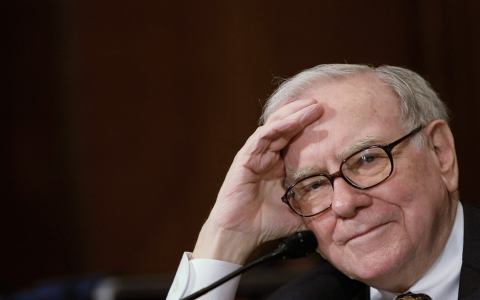
(The Motley Fool) In the media, fears of a recession are growing each day. Newspapers constantly attempt to predict when the next one will occur and colourfully try to describe how damaging it will be.
It’s easy to see their logic. No one is quite sure about how Brexit will impact the economy, especially as the chances of a no deal exit are increasing every day, and the pound still remains a relatively unpredictable currency. The US-China trade war is also causing further uncertainty in the marketplace and tensions do not seem to be ceasing. Added to this, many companies on the stock market look distinctly overpriced.
At the ripe age of 89, Warren Buffett has lived through a few recessions. He has invested through a lot of them too, since purchasing his first shares at 11 years old. At the moment, Buffett’s Berkshire Hathaway is sitting on $122 billion in cash, which is a move that many think indicates he predicates a recession is on the horizon. How has Buffett reacted during previous recessions?
Warren Buffett once said that an investor should be ‘fearful when others are greedy and greedy when others are fearful’. It is a style that Buffett adopted during the 2008 financial crisis, when Berkshire Hathaway went big on stocks like Goldman Sachs, investing $5billion in the banking giant. The deal saw Berkshire Hathaway earn $500 million a year in dividends. Or as Reuters put it, $15 a second.
This was at a time when most people were selling their holdings. This in itself does not make Buffett a contrarian investor. Instead, it’s him reacting to a frightened market and making judgements with a long time-frame in mind.
Through Berkshire Hathaway, Buffett famously invests only in companies he understands. He also tends to avoid investing in new startups, preferring to put his money behind established, profit making businesses. This strategy helped Buffett avoid the catastrophe of the dot-com bubble.
Skimming through indices now, it is hard to find these types of established companies trading at a price below their book value. Does holding a huge stockpile of cash indicate that Buffett predicates a recession is on the horizon?
Not necessarily. In his 2018 letter to shareholders, Buffett stated that he hoped to move some excess liquidity into businesses that Berkshire Hathaway owns and that he also wanted to make an ‘elephant-sized acquisition’. In the same letter, he also stated that he ‘will never risk getting caught short of cash’. Presumably so that if Buffett spots a value buying opportunity, he is ready to pounce.
I think that Buffett would admit that he can’t predict what will happen in the market in the next week, month or year. As he puts it, his rationale is ‘focused on calculating whether a portion of an attractive business is worth more than its market price’.
If there is a recession next year and the market drops significantly, I imagine he will be seeking out attractive businesses and utilising his cash pile. Business as usual for Buffett, then.



